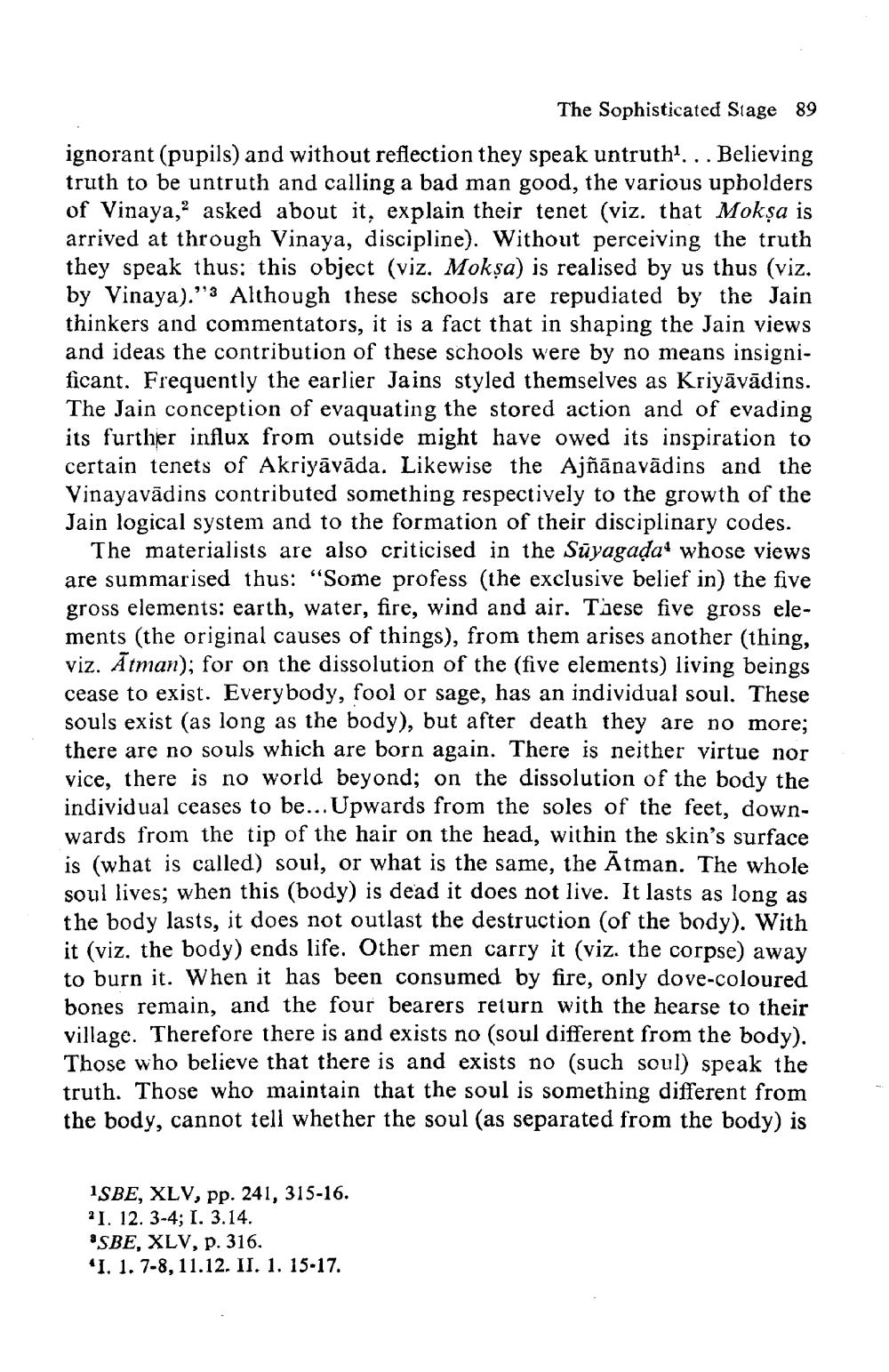________________
The Sophisticated Stage 89
ignorant (pupils) and without reflection they speak untruth. .. Believing truth to be untruth and calling a bad man good, the various upholders of Vinaya,” asked about it, explain their tenet (viz. that Moksa is arrived at through Vinaya, discipline). Without perceiving the truth they speak thus, this object (viz. Mokşa) is realised by us thus (viz. by Vinaya).''3 Although these schools are repudiated by the Jain thinkers and commentators, it is a fact that in shaping the Jain views and ideas the contribution of these schools were by no means insignificant. Frequently the earlier Jains styled themselves as Kriyāvādins. The Jain conception of evaquating the stored action and of evading its further influx from outside might have owed its inspiration to certain tenets of Akriyāvāda. Likewise the Ajñānavādins and the Vinayavādins contributed something respectively to the growth of the Jain logical system and to the formation of their disciplinary codes.
The materialists are also criticised in the Sūyagadat whose views are summarised thus: “Some profess (the exclusive belief in) the five gross elements: earth, water, fire, wind and air. These five gross elements (the original causes of things), from them arises another (thing, viz. Ātman); for on the dissolution of the (five elements) living beings
ease to exist. Everybody, fool or sage, has an individual soul. These souls exist (as long as the body), but after death they are no more; there are no souls which are born again. There is neither virtue nor vice, there is no world beyond; on the dissolution of the body the individual ceases to be... Upwards from the soles of the feet, downwards from the tip of the hair on the head, within the skin's surface is (what is called) soul, or what is the same, the Ātman. The whole soul lives; when this (body) is dead it does not live. It lasts as long as the body lasts, it does not outlast the destruction (of the body). With it (viz. the body) ends life. Other men carry it (viz. the corpse) away to burn it. When it has been consumed by fire, only dove-coloured bones remain, and the four bearers return with the hearse to their village. Therefore there is and exists no (soul different from the body). Those who believe that there is and exists no (such soul) speak the truth. Those who maintain that the soul is something different from the body, cannot tell whether the soul (as separated from the body) is
ISBE, XLV, pp. 241, 315-16. 2 I. 12. 3-4; I. 3.14. *SBE, XLV, p. 316. "1. 1. 7-8, 11.12. II. 1. 15-17.




